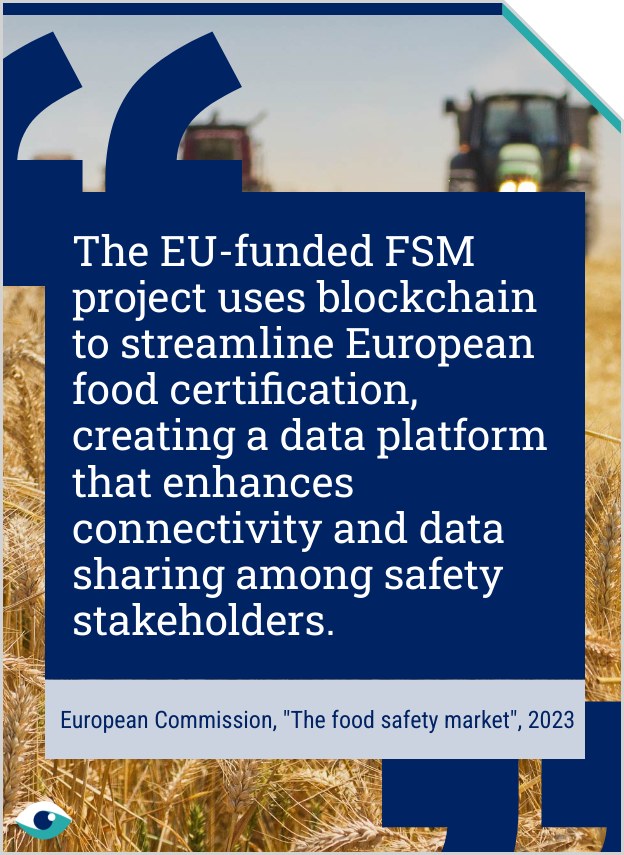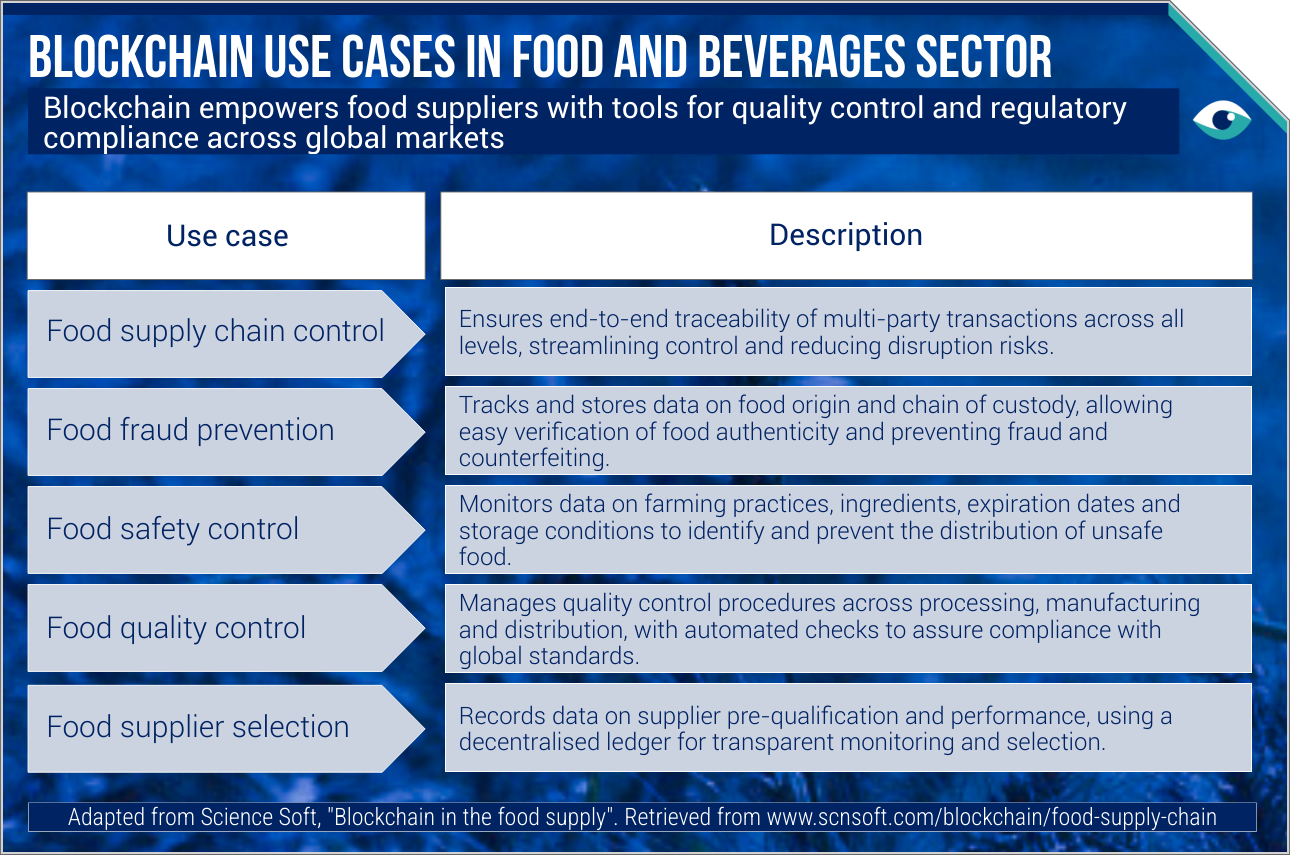The arrival of blockchain technology in the food and beverages sector enhances stakeholder transparency but presents complexities in data management. As companies start to integrate this technology, data accuracy is crucial for maintaining its effectiveness and preserving trust. Market analysts estimate that 20% of global grocers will use blockchain by 2025, highlighting this technology's potential. The dedication of major industry players like Cargill and the China Animal Health and Food Safety Alliance to blockchain accentuates its role in enhancing supply chain safety. Finally, businesses must focus on refining the accuracy of initial data inputs.

Enhancing traceability in food with blockchain technology
Blockchain integration boosts real-time tracking and streamlines logistics across global food supply chains
Technology
Food & beverages (all industries)
AT A GLANCE
Blockchain technology introduces significant transparency for stakeholders, but challenges like data integrity and system scalability remain.
Ensuring data accuracy is crucial as it influences the effectiveness of blockchain in managing sustainability risks.
Looking forward, precise data handling with blockchain could redefine safety standards and compliance in the industry.

Training in blockchain
Robust training initiatives like those initiated by Cermaq in France ensure the effective use of blockchain across the food supply chain, improving safety. These programmes allow French consumers to directly verify the origins and conditions of their salmon, linking them to sustainable practices and secure data management. Such educational efforts not only enlighten consumers but also establish benchmarks in the sector for using blockchain to enhance transparency and trust around food provenance.
Data entry standards
Studies involving Walmart demonstrate how blockchain can help to reduce waste by enabling precise food inventory management and optimising supply chain operations. This methodology allows Walmart to make timely adjustments to their supply chain strategies, substantially lowering the wastage of perishable items. Furthermore, blockchain's capability to document all transactions ensures an accountable and compliant supply chain.

Tech for data verification
The use of blockchain by Division Coffee and Tyson, in combination with Internet of Things (IoT) technologies, serves as an example of how advanced verification tools can drastically enrich product data traceability from producer to consumer. The integration of IoT devices allows for the continuous monitoring of product conditions, securing indisputable records on the blockchain that validate compliance and quality. Tyson’s deployment illustrates blockchain’s useful role in maintaining data integrity throughout various stages of food handling.
Industry collaborations
Partnerships like the one between Walmart and IBM, along with initiatives led by the European Food Safety Authority, demonstrate the potential of collaborative efforts to scale blockchain technologies and advance food safety measures throughout Europe. Walmart’s ability to trace product origins swiftly down to specific farms showcases the effectiveness of strategic partnerships in shortening critical response times for recalls, thereby enhancing consumer safety.
FURTHER READING
- The power of blockchain in food (Deloitte)
- Blockchain applications in food industry (Blockchain Council)
- Blockchain technology in food industry (Michigan State University)
